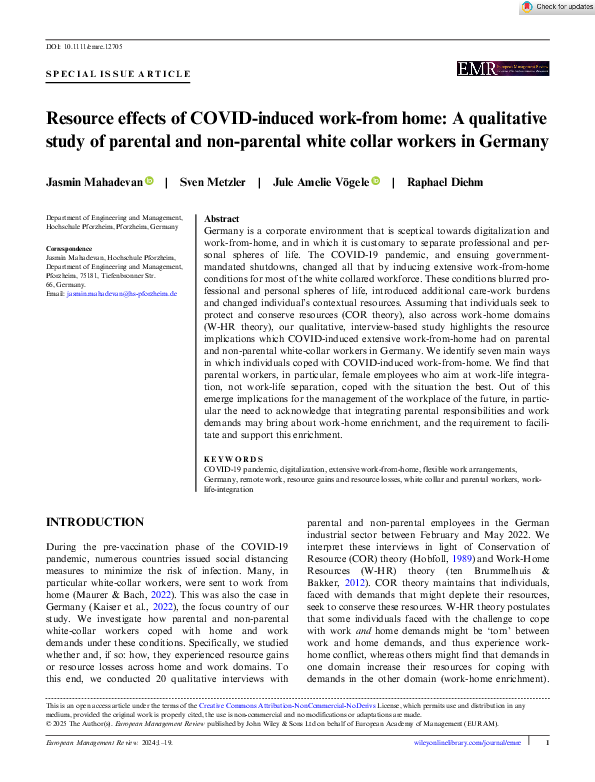Resource effects of COVID‐induced work‐from home: A qualitative study of parental and non‐parental white collar workers in Germany

Mahadevan, Jasmin ; Metzler, Sven ; Vögele, Jule Amelie ; Diehm, Raphael
2025
Early view
1-19
epidemic disease ; digitalisation ; telework ; work-life balance ; work at home
Work organization
https://doi.org/10.1111/emre.12705
English
Bibliogr.
"Germany is a corporate environment that is sceptical towards digitalization and work‐from‐home, and in which it is customary to separate professional and personal spheres of life. The COVID‐19 pandemic, and ensuing government‐mandated shutdowns, changed all that by inducing extensive work‐from‐home conditions for most of the white collared workforce. These conditions blurred professional and personal spheres of life, introduced additional care‐work burdens and changed individual's contextual resources. Assuming that individuals seek to protect and conserve resources (COR theory), also across work‐home domains (W‐HR theory), our qualitative, interview‐based study highlights the resource implications which COVID‐induced extensive work‐from‐home had on parental and non‐parental white‐collar workers in Germany. We identify seven main ways in which individuals coped with COVID‐induced work‐from‐home. We find that parental workers, in particular, female employees who aim at work‐life integration, not work‐life separation, coped with the situation the best. Out of this emerge implications for the management of the workplace of the future, in particular the need to acknowledge that integrating parental responsibilities and work demands may bring about work‐home enrichment, and the requirement to facilitate and support this enrichment."
Digital
The ETUI is co-funded by the European Union. Views and opinions expressed are however those of the author(s) only and do not necessarily reflect those of the European Union or the ETUI.